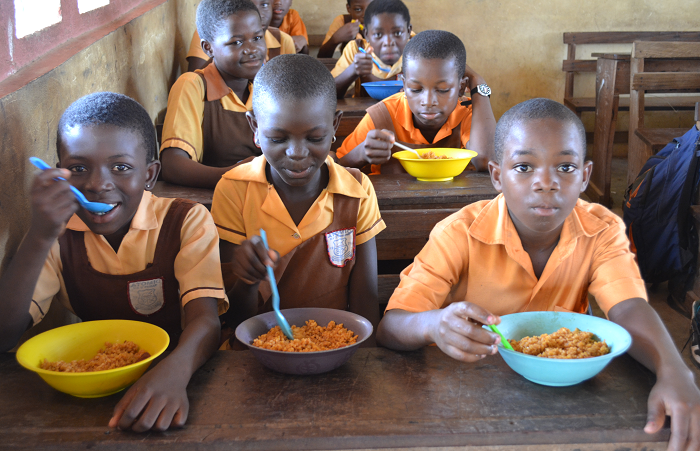
Let’s make our social intervention policies work
The Ghana School Feeding Programme (GSFP), which was started in 2005, is one of the most important government social interventions that seek to encourage many more needy children to go to school.
Under the programme, pupils in deprived schools are given one nutritious hot meal a day. Currently, it is estimated that about 5,000 caterers are preparing meals for about 1.7 million pupils in 216 districts across the country.
However, this laudable initiative is being undermined by partisan considerations. The issue is that with every change in government, members and foot soldiers of the governing party take over the GSFP, thereby derailing its smooth operations.
This is a challenge confronting the effective implementation of the programme and all efforts must be made to ensure that it actually plays its expected role in the national development effort.
The Daily Graphic would like to add its voice to the condemnation by Members of Parliament (MPs) of the wholesale sacking of caterers providing services for the programme after a change in government.
The MPs, in condemning the practice last Friday, were of the view that it was crucial for the programme to be treated as a national one and for all caterers, irrespective of their political affiliations, to be allowed to provide their services.
Earlier, the MP for Ejura Sekyedumase, Mr Muhammad Bawah Braimah, had made a statement on the suspension of the GSFP in his constituency.
He said about 14,728 pupils, comprising 7,384 males and 7,384 females, were covered by the GSFP in the constituency.
From the Daily Graphic’s perspective, we need to look at the GSFP carefully and make it work free from political interference, since that will defeat the purpose of the programme and eventually affect the quality of education.
Another worrying issue is the quality of the food served the school pupils. It is equally worrying that payment to the providers are also irregular.
Clearly, efforts must be made by all stakeholders to work together to free the programme from politicisation, which has the potential to undermine the purpose of the programme.
Apart from the GSFP, many social intervention policies, including the National Health Insurance Scheme and the Capitation Grant, are plagued with controversies.
These policies are, no doubt, the right way to offer safety nets for the vulnerable in society but, regrettably, the major political divides have never had agreement on the way forward.
The Daily Graphic would like to underscore the need for all stakeholders to embrace these social initiatives and come together to address the challenges, particularly those of the GSFP, now.
After all, the GSFP was put in place to have a national character and it will absolutely be wrong for providers to be booted out each time a new government comes into office.
